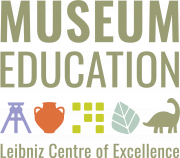Day 2: Underserved/Under-represented Communities
Wednesday, November 10th, 2021
Part I: Keynote and Short Talks
Audience development as a holistic marketing strategy, a reason for organisational transformation or a policy concept for cultural inclusion and community building – Birgit Mandel
Keynote
This Keynote presentation provides an overview of different concepts, objectives, strategies and effects of audience development and asks, based on international discourse, about limitations, challenges and new options within the field.
Birgit Mandel is Professor of Cultural Mediation and Cultural Management and Director of the Institute for Cultural Policy at the University of Hildesheim. She directs the master‘s programme in cultural mediation as well as the bachelor‘s programme in cultural studies and aesthetic practice. She has led various research projects at the intersection of cultural mediation, cultural education, audience development, cultural management and cultural policy, as well as visitor studies and population surveys and is the author of many publications in the field of cultural mediation and cultural management.
Informal and non-formal learning in science: opportunities for representation – Sarah Hayes
Short Talk
This session focuses on working with under-represented groups in STEM, particularly on social and educational disadvantage. Frequently, engagement with science is influenced by gender, class, and cultural background in formal education. Meanwhile, many papers have proposed the potential of informal and non-formal education initiatives, noting that the greater freedom and flexibility available in non-formal education provide rich opportunities for learning and engagement. Sarah presents a number of projects and approaches her research team has engaged with as cases for discussion. Often universities enter into communities intent on ‘solving a problem’ or ‘providing a solution’. This is disempowering and patronising to the people who live in those communities and fails to recognise existing expertise and community ‘know how’. Sarah’s team’s approach has been to develop community consortia partnerships. These partnerships provide an innovative co-created infrastructure to advance engagement, particularly amongst under-represented groups and hard to reach communities.
Sarah Hayes is the COO of SSPC, the (SFI) Science Foundation Ireland Research Centre for Pharmaceuticals at the University of Limerick. Her background is in physical chemistry and she received her PhD in Science Education in 2011. Sarah has worked as a high school Physics and Chemistry teacher and lecturer in university. She has been involved in research, curriculum development, and working with under-represented groups, focusing on research informed best practice, particularly in the area of informal and non-formal learning and engagement. Sarah is interested in how people connect with science, and how this motivates their behaviour.
Data collection as a starting point for drawing new audiences – Siëlle Gramser
Short Talk
Before exploring who isn’t visiting our museums and why, we need a thorough understanding of who is visiting and why. In a unique joint data collection effort in 2018/2019, the eight Leibniz research museums in Germany gathered reliable, comparable data on their visitors’ personal background and visit behaviour. Drawing on this data, this talk highlights the question of who is visiting by looking at visitors’ sociodemographic and socioeconomic background, and the question why are they visiting by focusing on their visit motivation. As visit motivation captures what moves people to visit a museum, it can indicate which expectations are (not) being met and can form a starting point for drawing new audiences.
Siëlle Gramser is project coordinator for the Leibniz Centre of Excellence for Museum Education. She also works as a research associate at the department of Formal and Informal Learning of the Technical University of Munich, where she is currently involved in the Erasmus+ project “Inclusion Training for Explainers in Museums and Science Centres”. Her prior research at the TUM mainly focused on controversial science topics in museums and on visit motivation in educational leisure settings.
Why museum representations of Black Lives Matter – Monique Scott
Short Talk
This talk reveals how prototypical human origins exhibitions, historically and today, speak to an ostensibly monolithic white Western audience, and that a primary function of human origins narratives is to reassure that audience of their own cultural identity as an advancement beyond their African origins. The talk also delves into how 19th-century ideology of black evolutionary inferiority has persistent residues in pop culture and American politics in and beyond the Trump era. Museum representations of Africa and anthropological representations of Black bodies matter because black lives matter. As long as Blackness is devalued and naturalized – in museums, popular culture, on the streets of cities where Black people are brutalized – we must interrogate how museums and anthropology take part in the construction of racial hierarchies with Blackness on the bottom. Can museums and anthropology help to deconstruct those same hierarchies?
Monique Scott is an Associate Professor in the History of Art Department at Bryn Mawr College and is the Director of Museum Studies at the College. Her work specializes in anthropological representations of race in museums, particularly representations of Africa and people of African descent, the basis for her 2007 book Rethinking Evolution in the Museum: Envisioning African Origins. In addition to her scholarship on race science, race and representation and the histories of African collections in museums, she has curated exhibitions and developed public education programmes in the American Museum of Natural History (where she served as head of cultural education from 2005-2015), the Penn Museum of Archaeology and Anthropology, and the Penn Institute of Contemporary Art.
